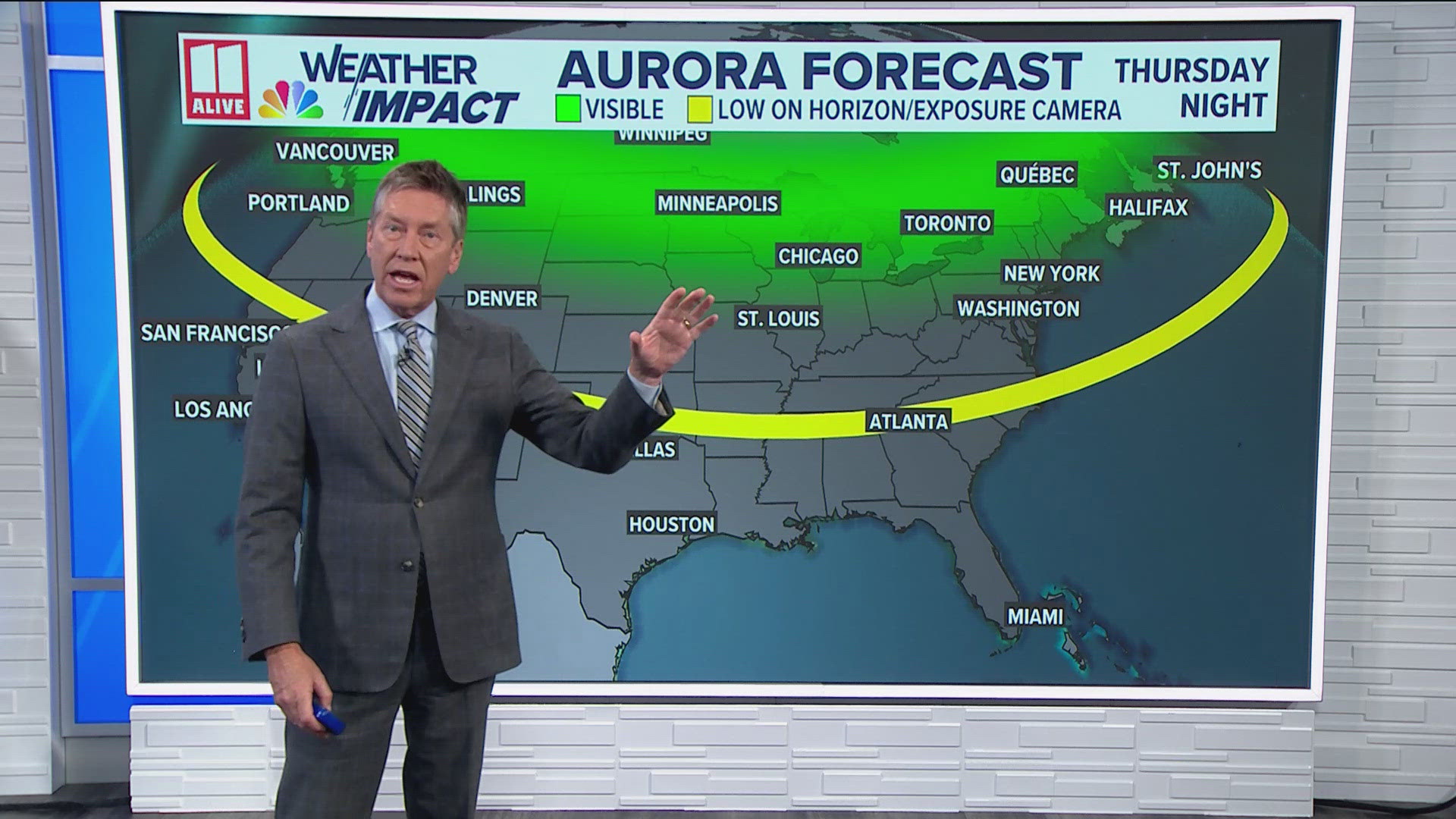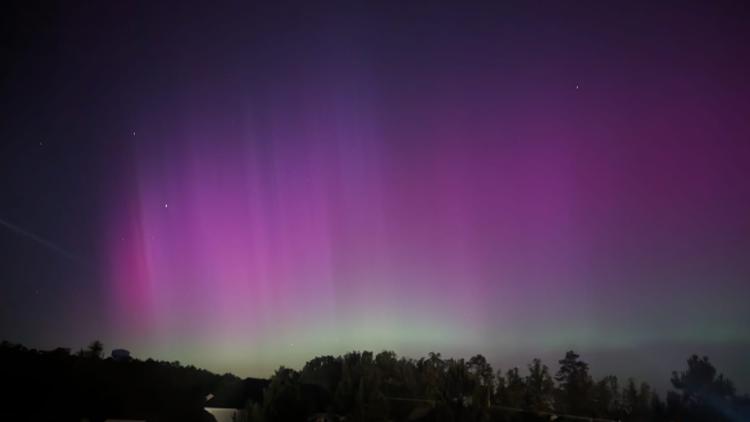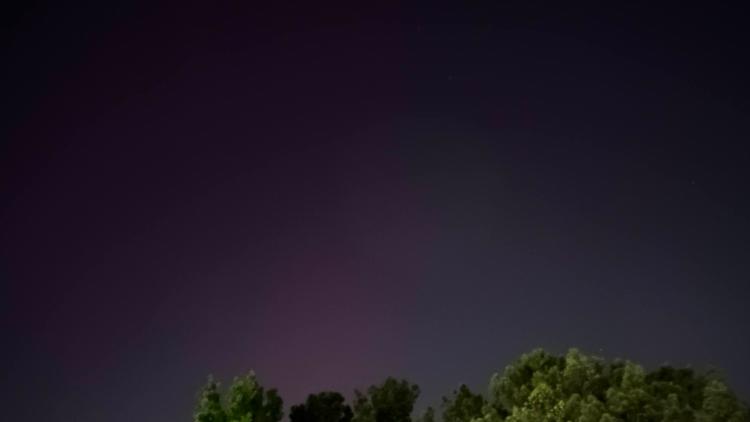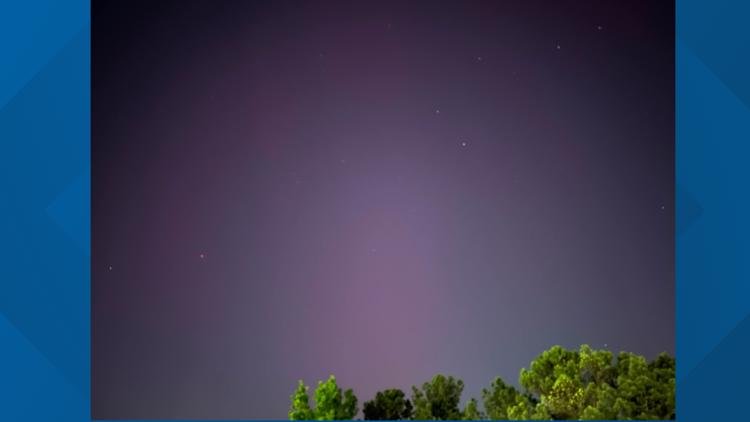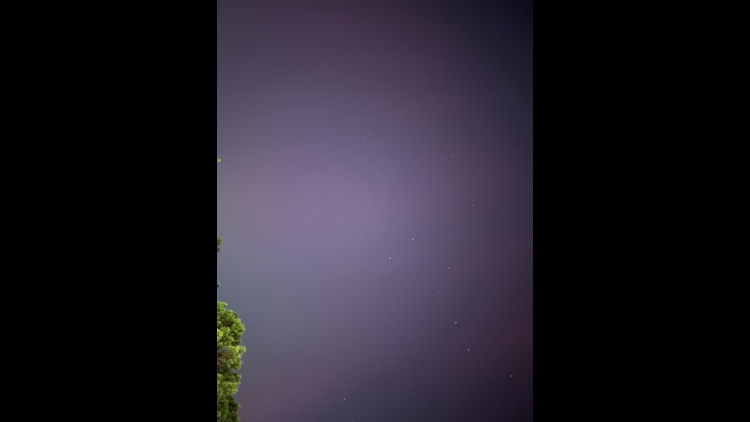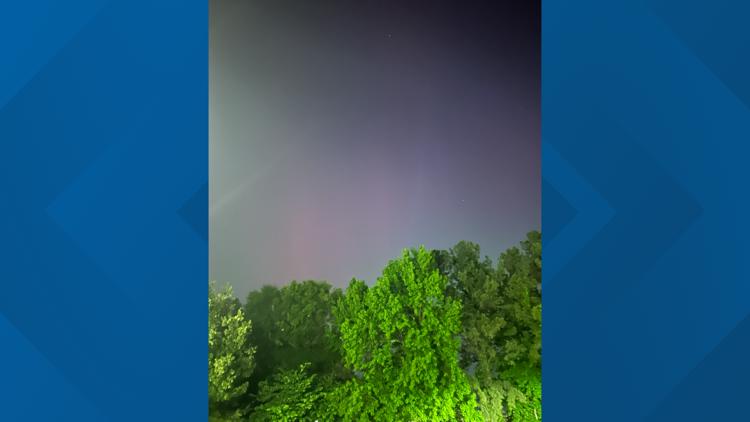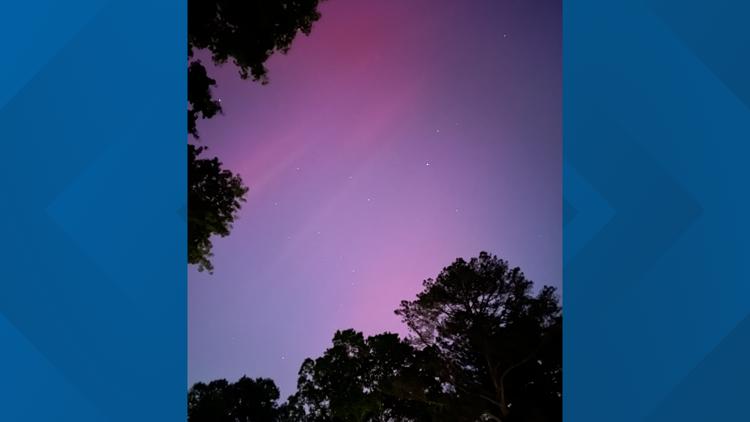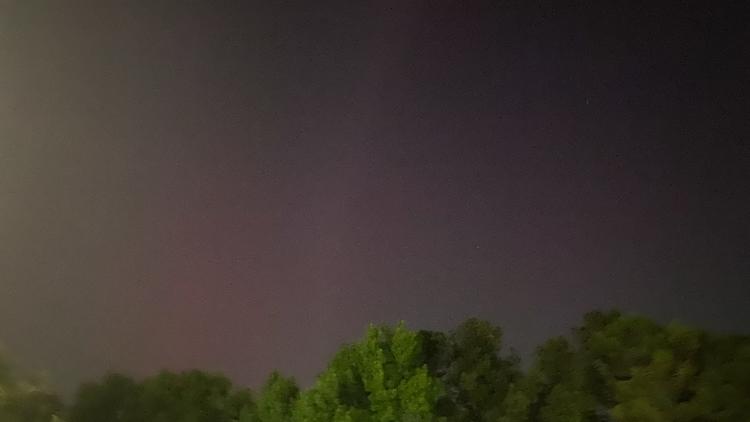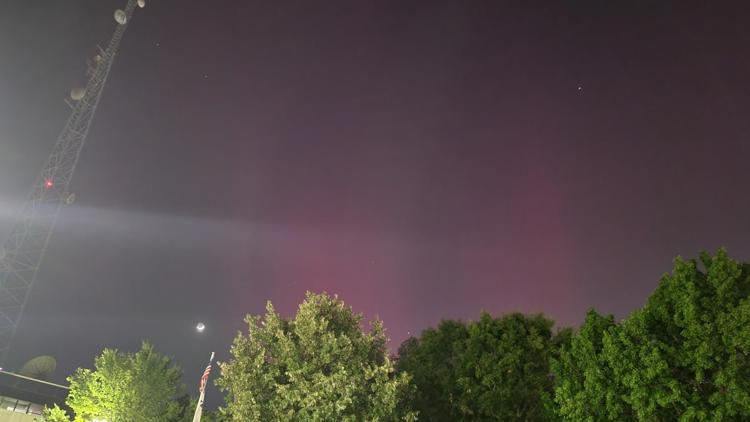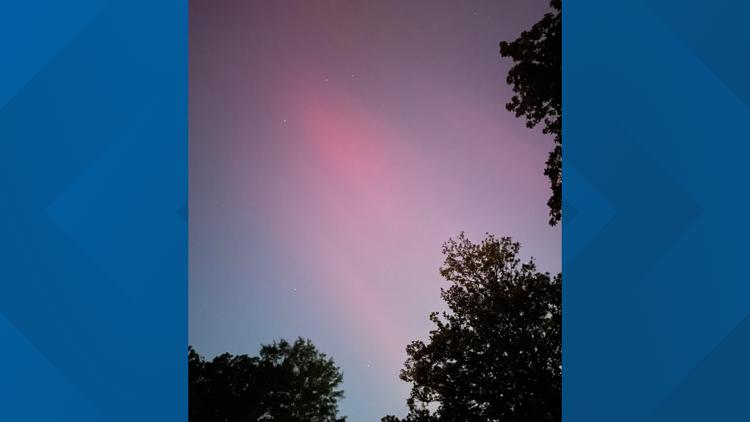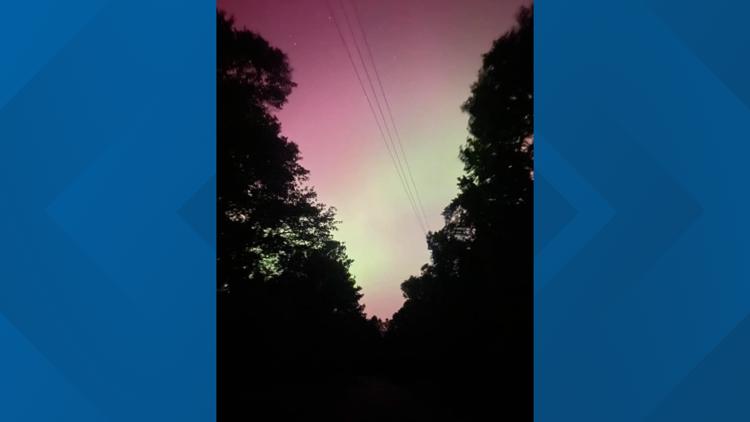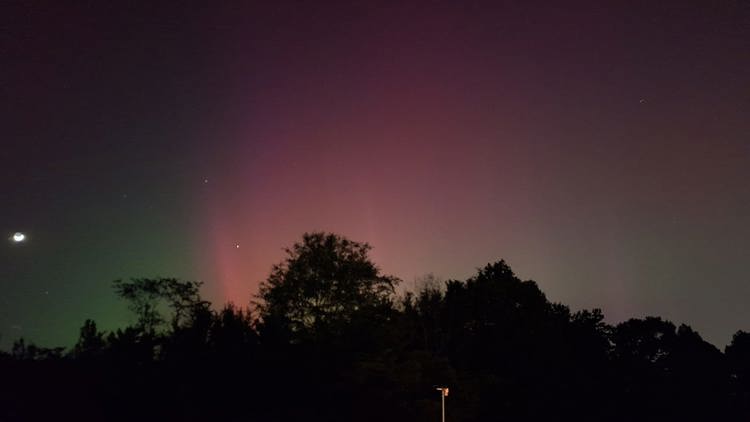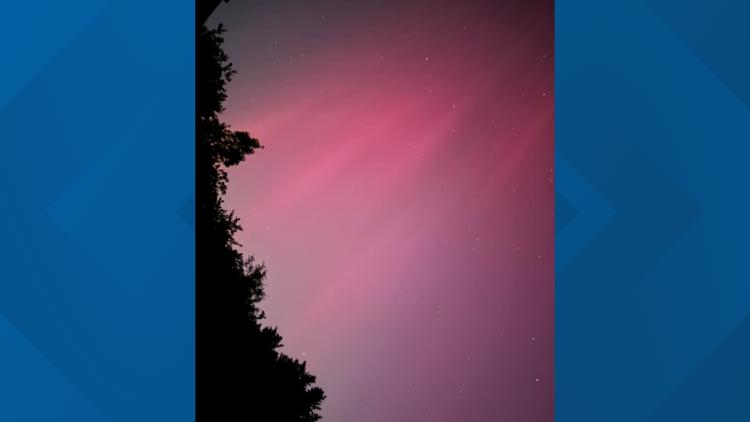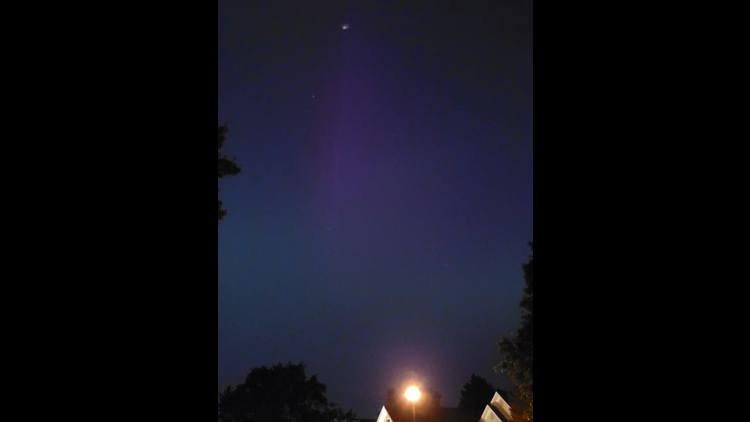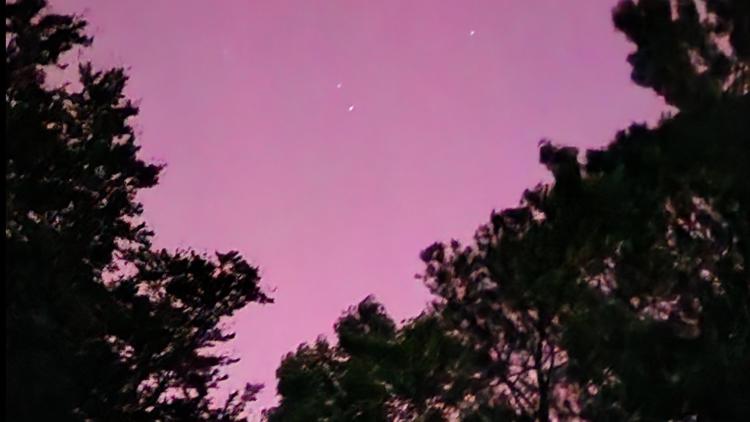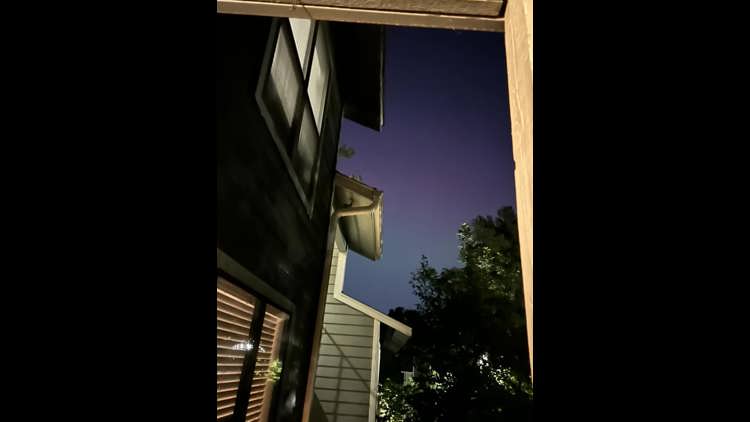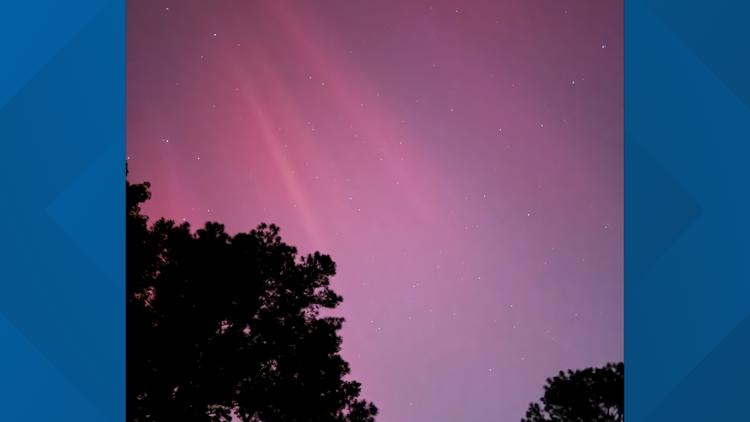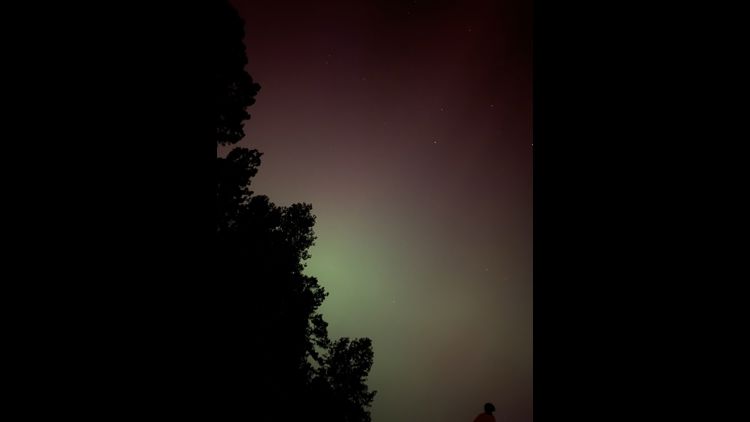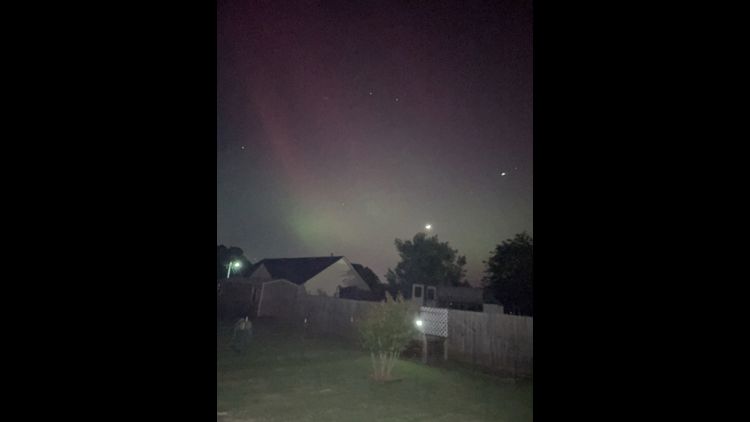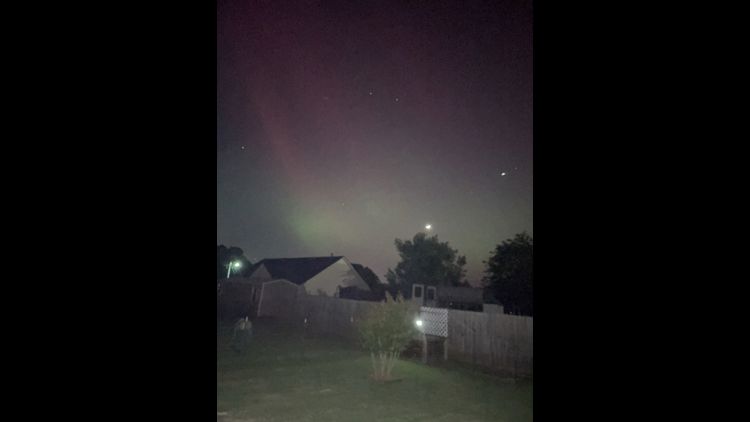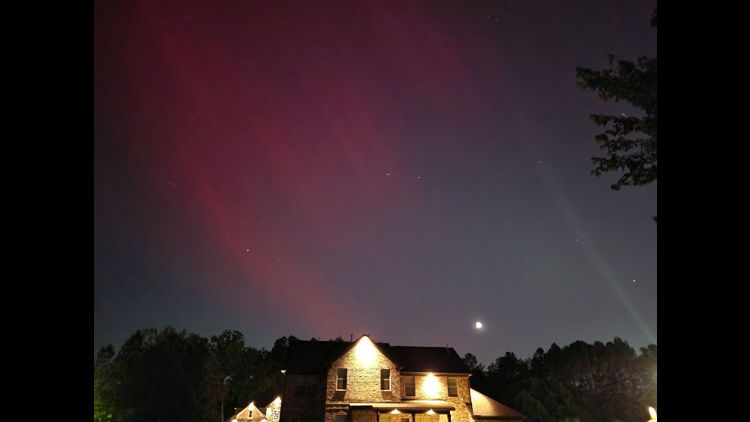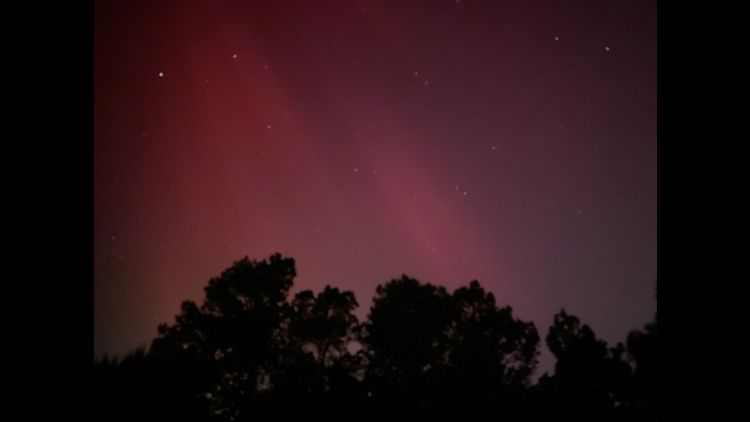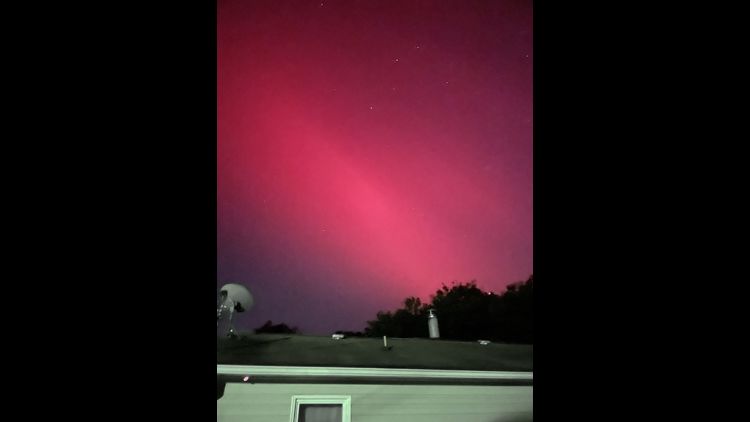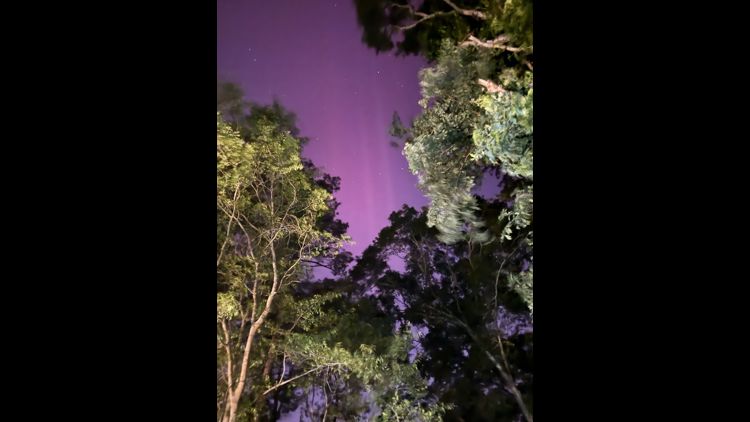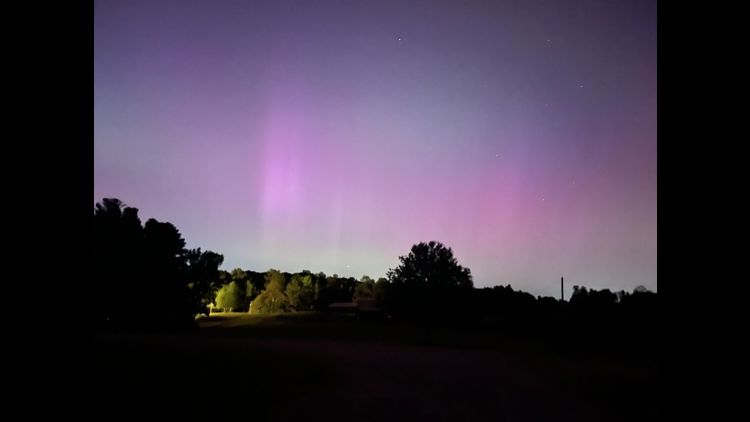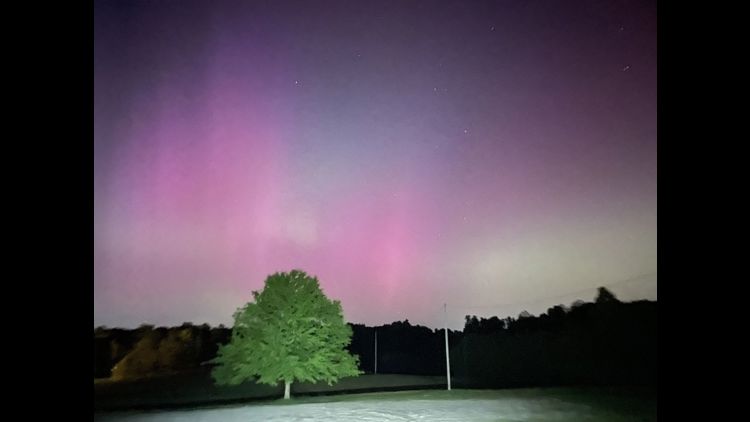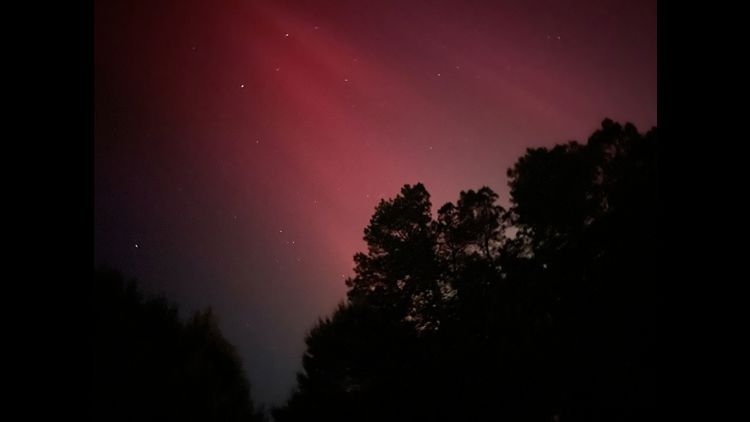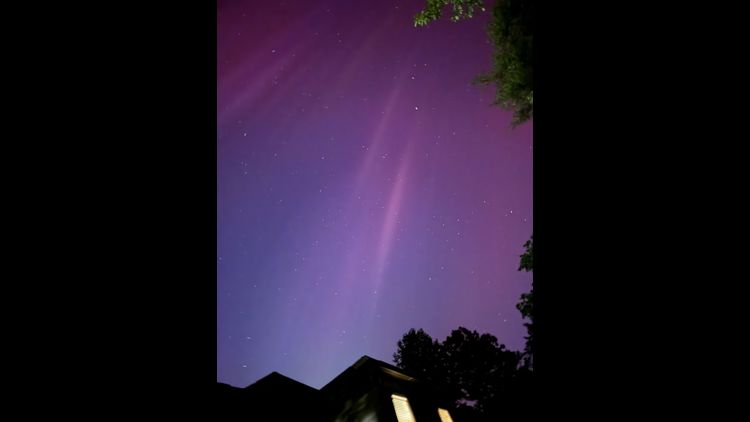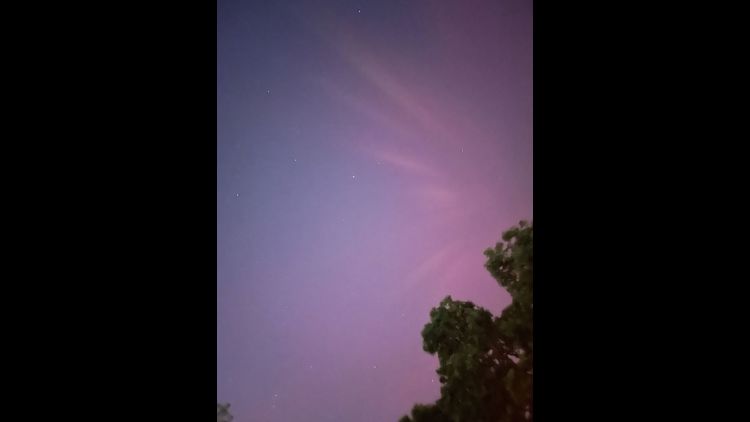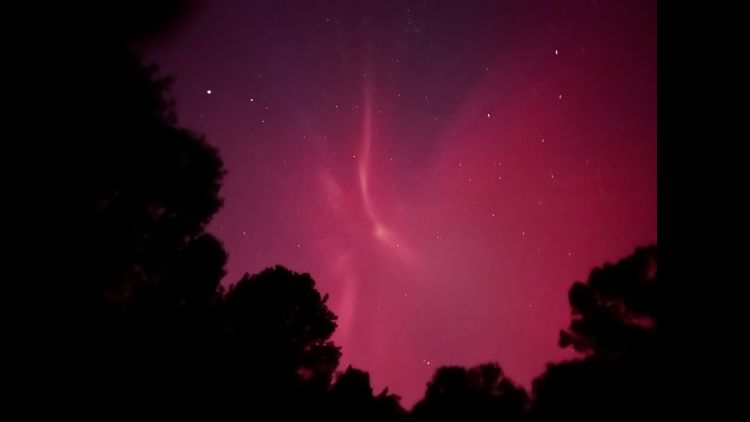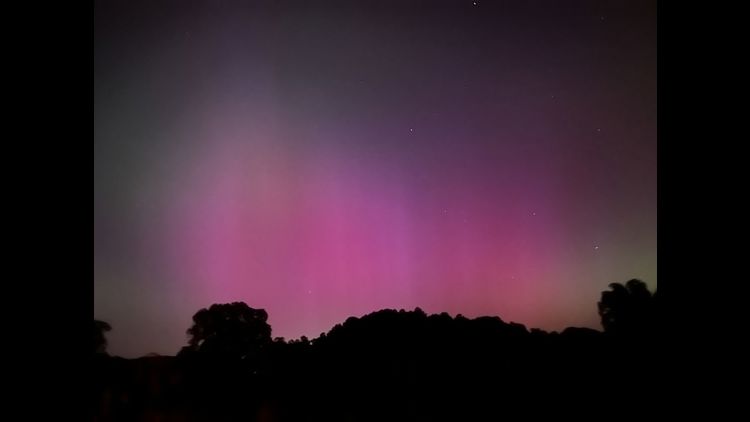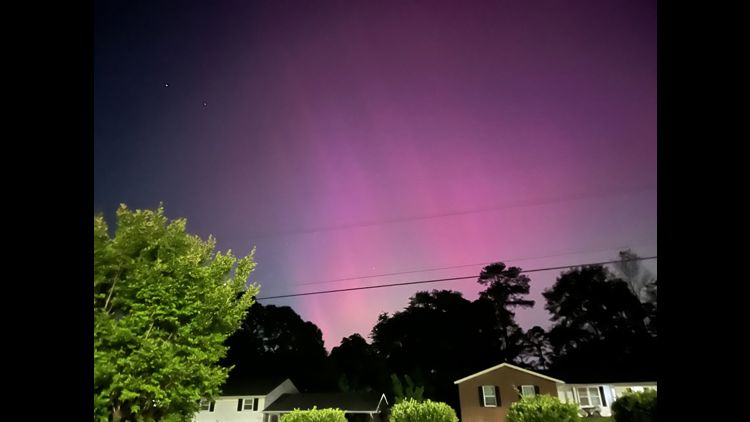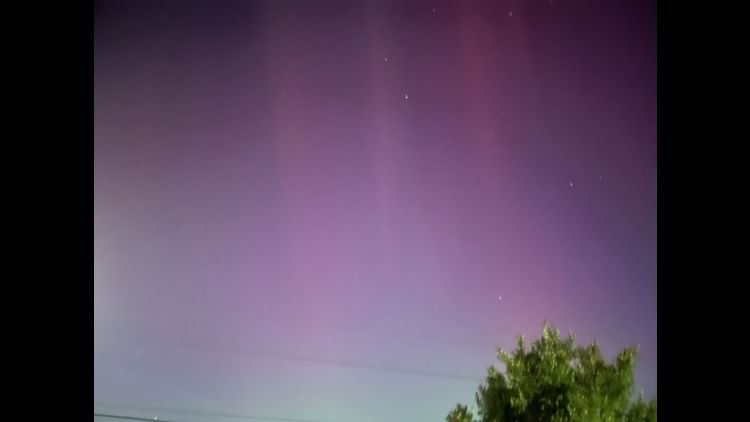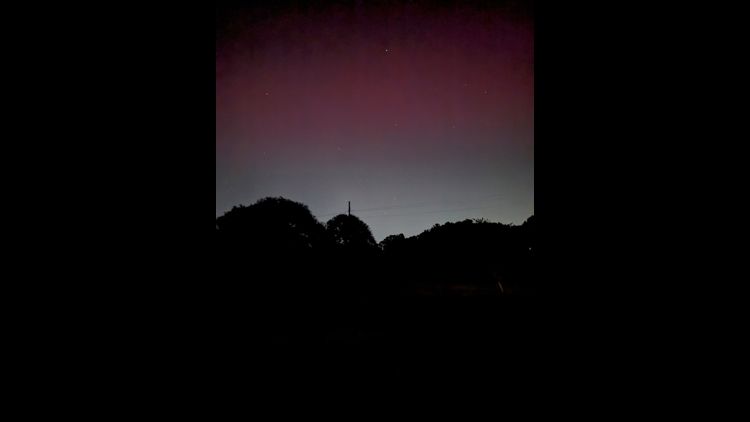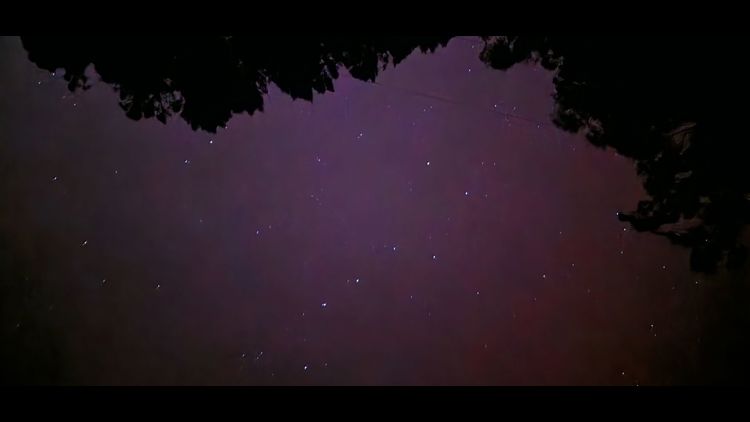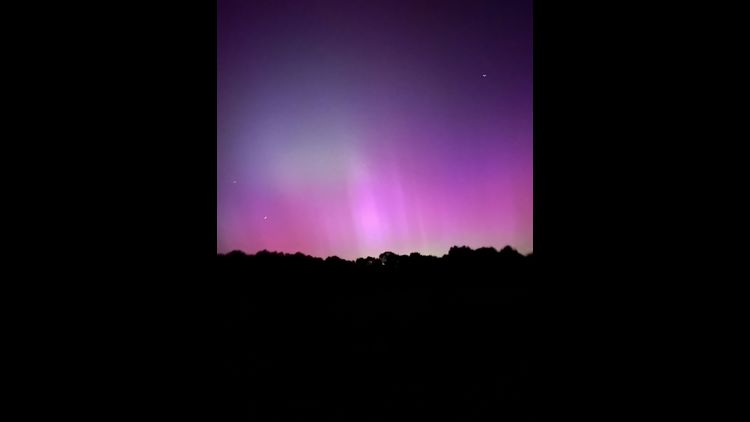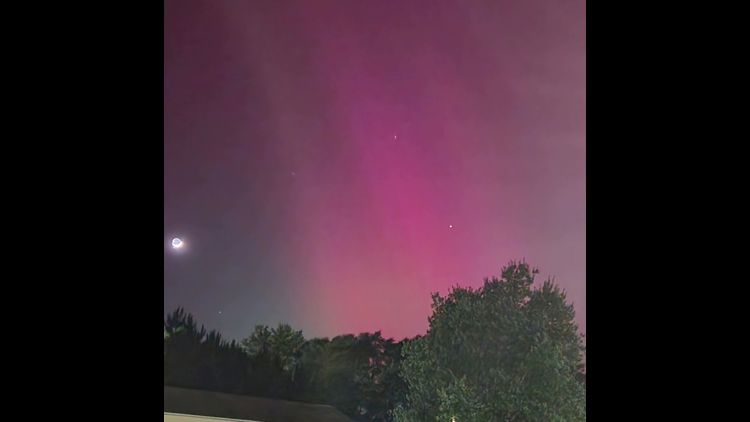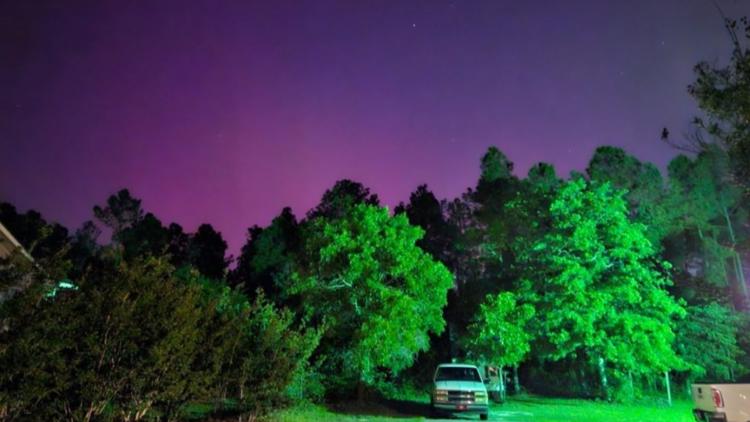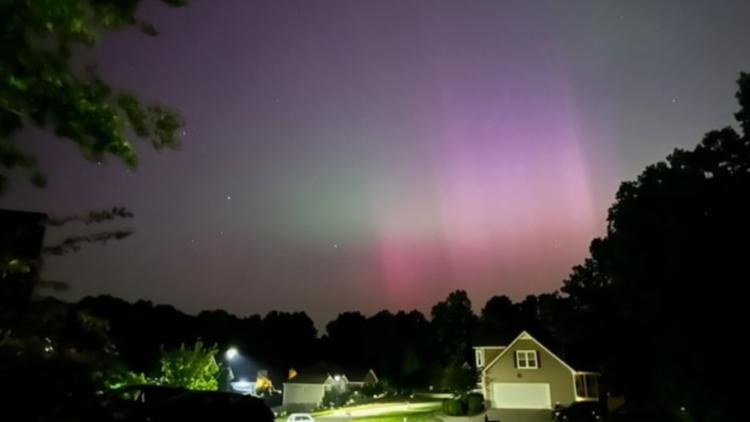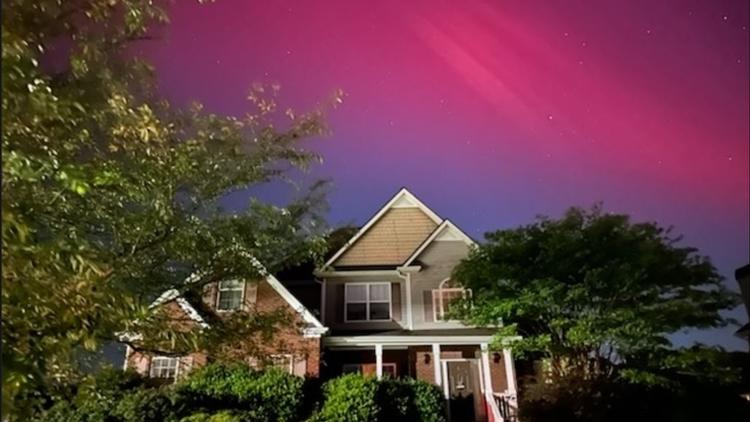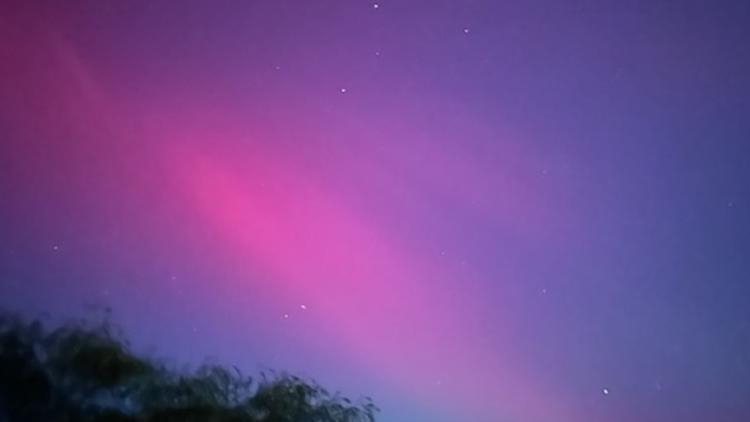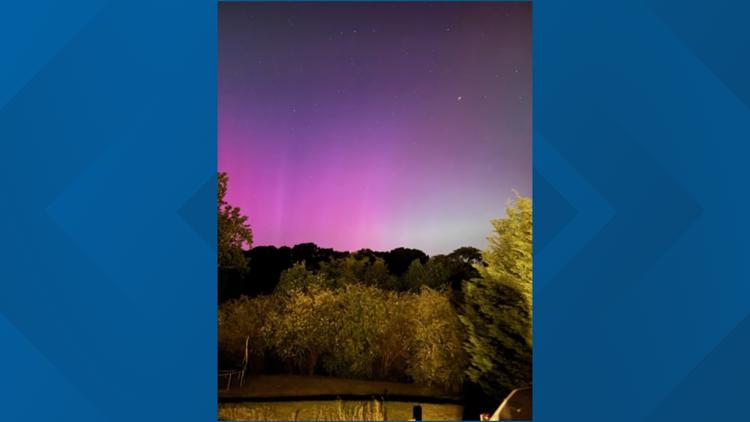ATLANTA — UPDATE: The northern lights are over north Georgia!
Check out the magnificent photos here:
_____________________________________
So you're saying there's a chance? Yes. But it's a low chance. The northern lights could be visible tonight and overnight as far south as metro Atlanta and northern Alabama.
What is causing this?
A G4 geomagnetic storm reached the earth today. That is from a coronal mass ejection from the sun a couple of days ago. As this energy makes it to the earth, it disturbs the magnetic field, which can sometimes allow visibility of auroras in the sky.

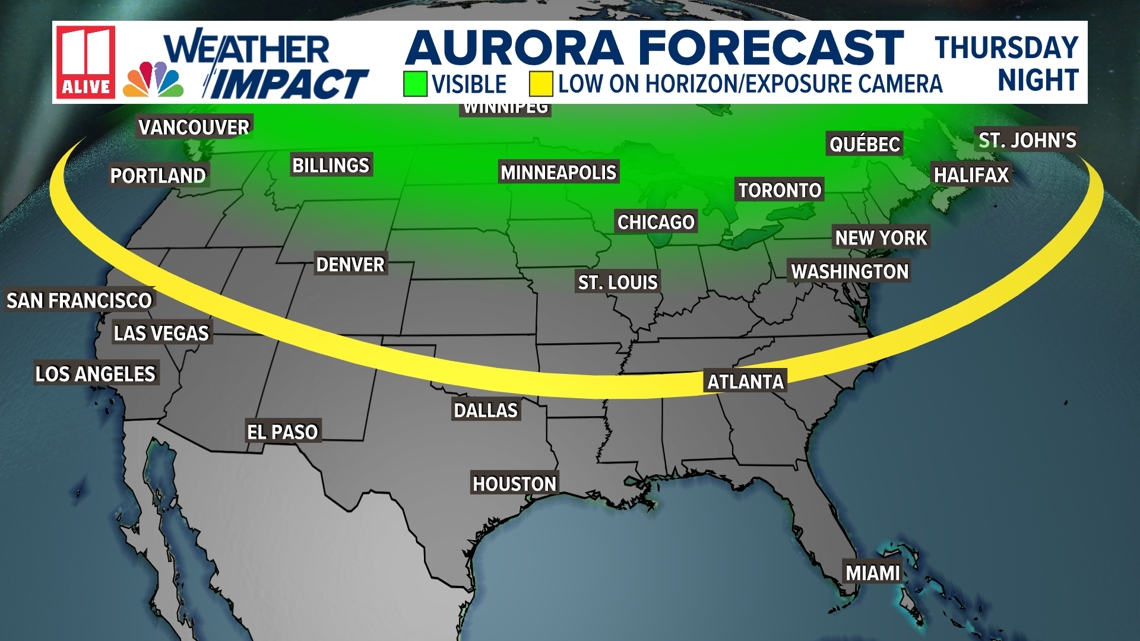
The chances for visibility are higher in the northern part of the United States. However, the Space Weather Prediction Center shows the "visibility line" as far south as Georgia and Alabama. This line is an area with very low chances of having good visibility. If we were able to see any aurora in the sky tonight, it would be low on the horizon looking north. It is also hard to know exact times because it's very spotty. Just be on the lookout anytime after sunset Thursday into the overnight hours.

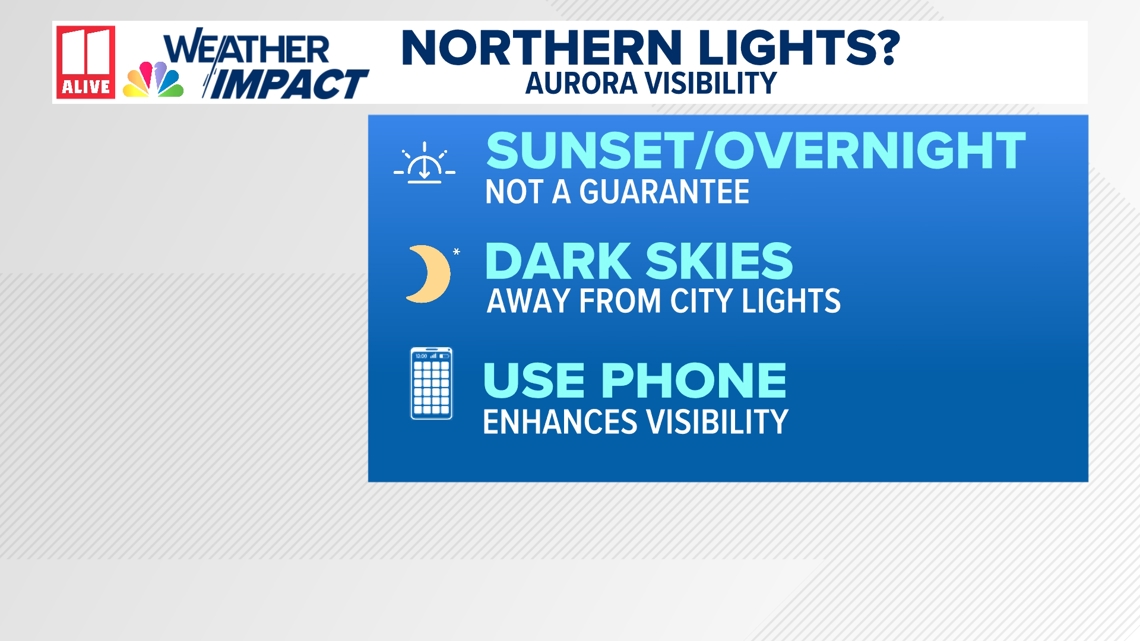
It's also best to get away from city lights or any light pollution. Make sure the sky is dark. Also, it may be hard to view with the naked eye. The last time we had the northern lights this far south, many could only see them by looking through their phone camera or a long-exposure camera.
Not a guarantee
Just remember, these forecasts are very tricky. It's rare to be able to see the northern lights this far south. But it does occasionally happen. Just be observant tonight if you are out to see if you can see anything.
What other impacts
This geomagnetic storm could also cause issues with satellite transmissions. Your GPS systems could also have some interference.
May 2024 phenomena in Georgia
Back in May, you could look up to the skies in Georgia and see a phenomenon that is rarely ever seen this far south.
That was because there was a G5 Geomagnetic Storm Observation across the United States on May 10, the first time it has ever happened here since 2003. Also known formally as the aurora borealis, the northern lights are most typically found in high-latitude regions like the Arctic and Antarctic.

